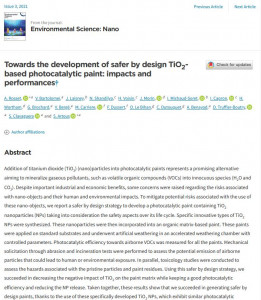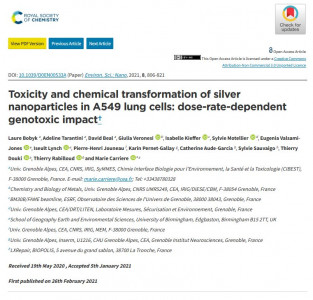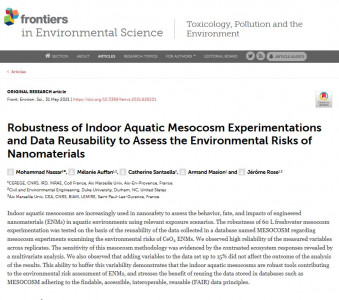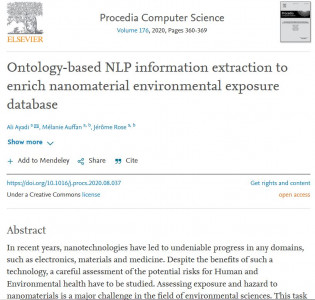Fourth Sustainable Nanotechnology Organization Conference 2015 color = green> , from Sunday, November 8 to Tuesday, November 10 in Portland, Oregon (USA)
Theme : Sustainable Nanotechnology Systems
ABSTRACT (NOT STUDENT AWARD) DEADLINE EXTENDED TO SEPTEMBER 1 !
This year's SNO conference sessions will be organized around selected "systems", e.g. air-water systems. Sessions will be populated with talks on applications, effects and implications, analytical methods, and lifecycle aspects of nanomaterials within each system. The aims are to identity where nanomaterials and nanotechnology can improve the sustainability of each system and to foster integration of knowledge between applications and implications within each system. We also aim to encourage more papers on the applications of nanomaterials. Papers on lifecycle aspects of nanomaterials within each system or across systems is encouraged. New developments in analytical methods and instrumentation are also encouraged. Topics from prior conferences will be regrouped under an appropriate system.
In these systems of interest, we ask how we are helping reach sustainability through nanotechnology :
1. Food/agricultural systems : Precision agriculture ; pesticide delivery, nutrient delivery, improved food packaging and preservation ; food fortification ; stabilizing soil ; human health and environmental implications.
2. Energy systems : Energy storage ; generation by solar and wind ; energy transmission ; CO2 capture and storage ; plant efficiency improvements ; system controls ; air pollution control in fossil systems.
3. Air/Water systems : Drinking water treatment ; air pollution controls, wastewater treatment ; groundwater remediation ; pollution prevention ; disinfection ; decreasing the energy footprint of water treatment ; distribution systems ; source water protection ; lowering demand for water in industry and households, air filtration systems.
4. Industry/Manufacturing (in general, not just nanomanufacturing) systems : Lowering process energy requirements ; using more benign materials ; safety of nanomaterials compared to alternatives ; substitution for renewable resources ; pollution prevention ; monitoring systems for manufacturing ; lifecycle releases of nanomaterials and models to predict exposure concentrations ; economic sustainability of nanotechnology.
5. Solid Waste (especially E-Waste) management : Recycling of nanomaterials ; resource recovery from landfills ; improved quality of recycled materials ; advanced waste management.
6. Environmental/Biological systems : Ecotoxicity ; ecosystem responses to nanomaterial releases ; improved monitoring tools, exposure routes and exposure models for consumers and the environment ; models for environmental fate and exposures of nanomaterials.
7. Health/medical systems : Diagnostic tools for healthcare ; nanomedicine and improved drug delivery ; models for nanotoxicity prediction/reduction.
8. Urban systems : Improving construction materials ; building more sustainable residences and commercial buildings ; improving energy systems for heating and cooling ; improving transportation systems (including increasing fuel efficiency ; decreasing weight of vehicles ; building better catalysts).
9. Education systems : Curriculum development for sustainable nanotechnology, case studies, materials development, informal education networks.
10. Social systems and governance : Upcoming laws and regulations ; systems of governance of nanomaterials ; social justice concerns ; education ; calculating and communicating benefits (and risks) of nanotechnology.
For more informations, please go to the following web page :

- SNO









